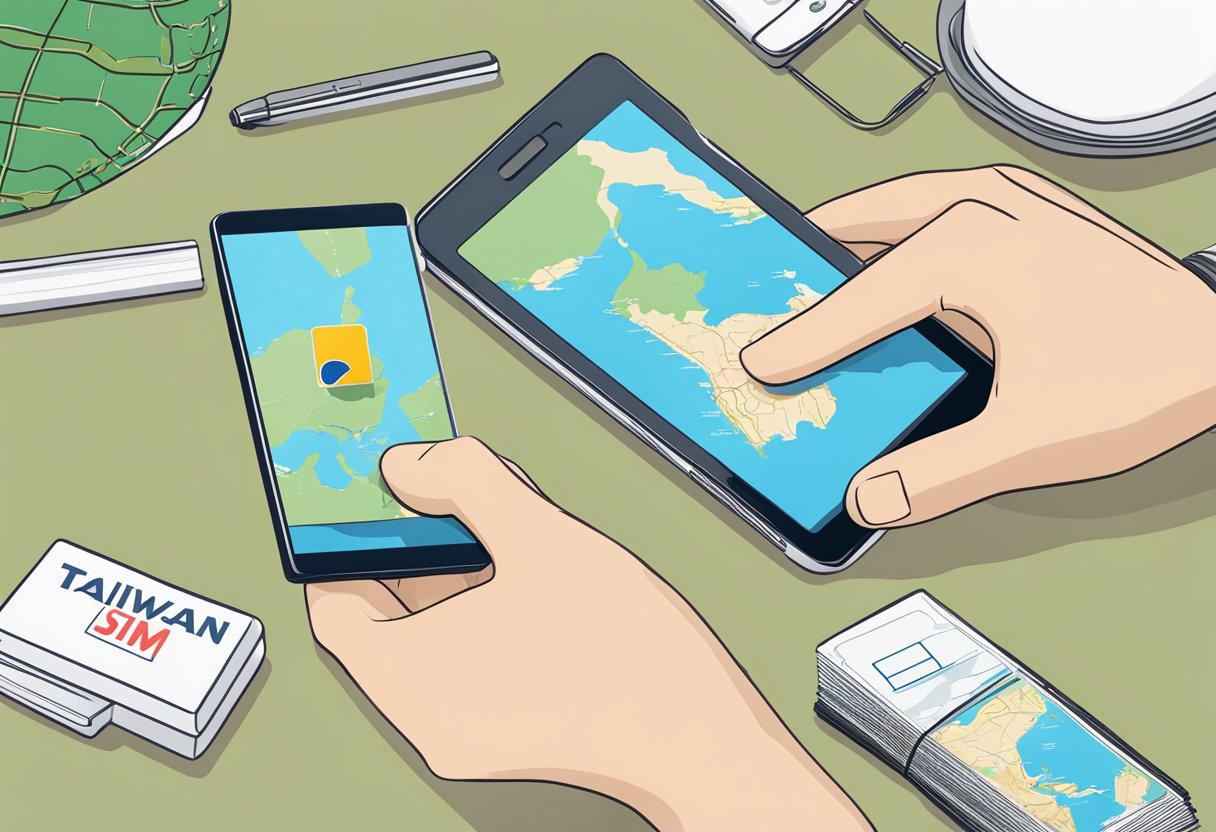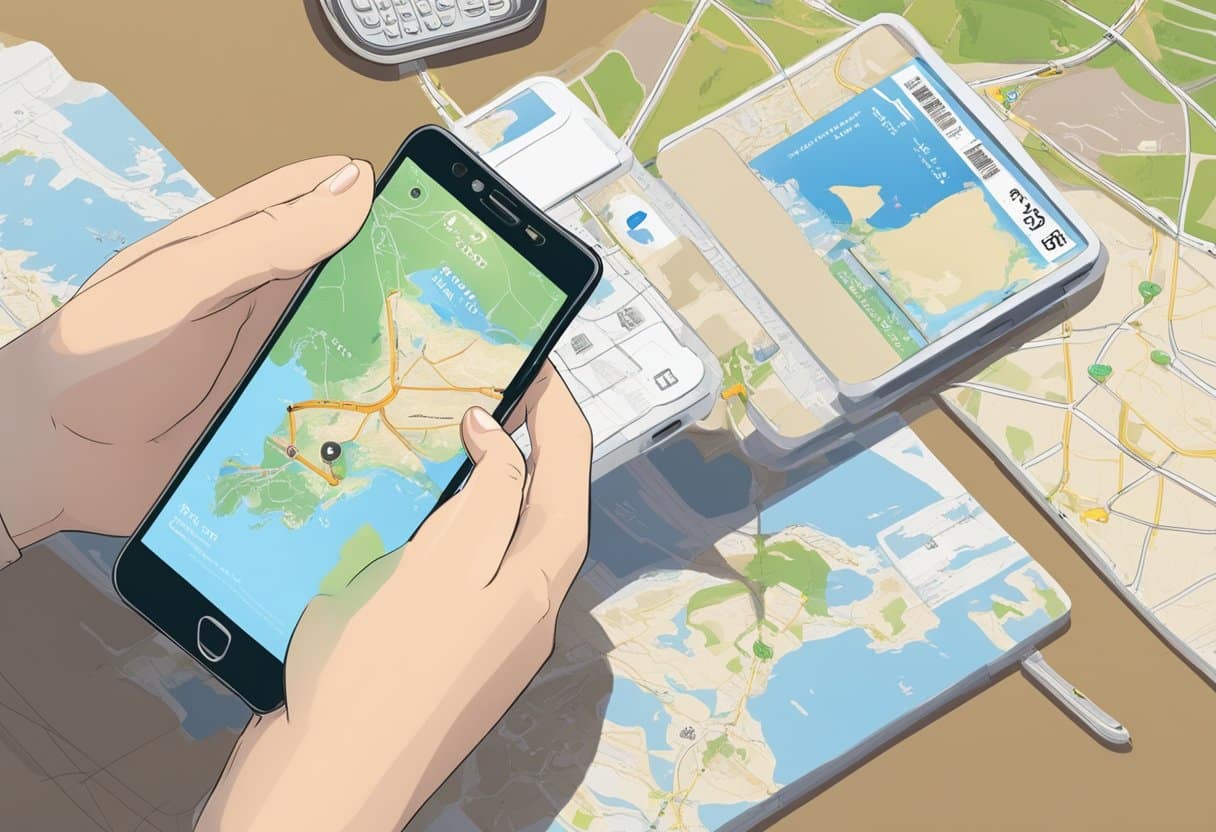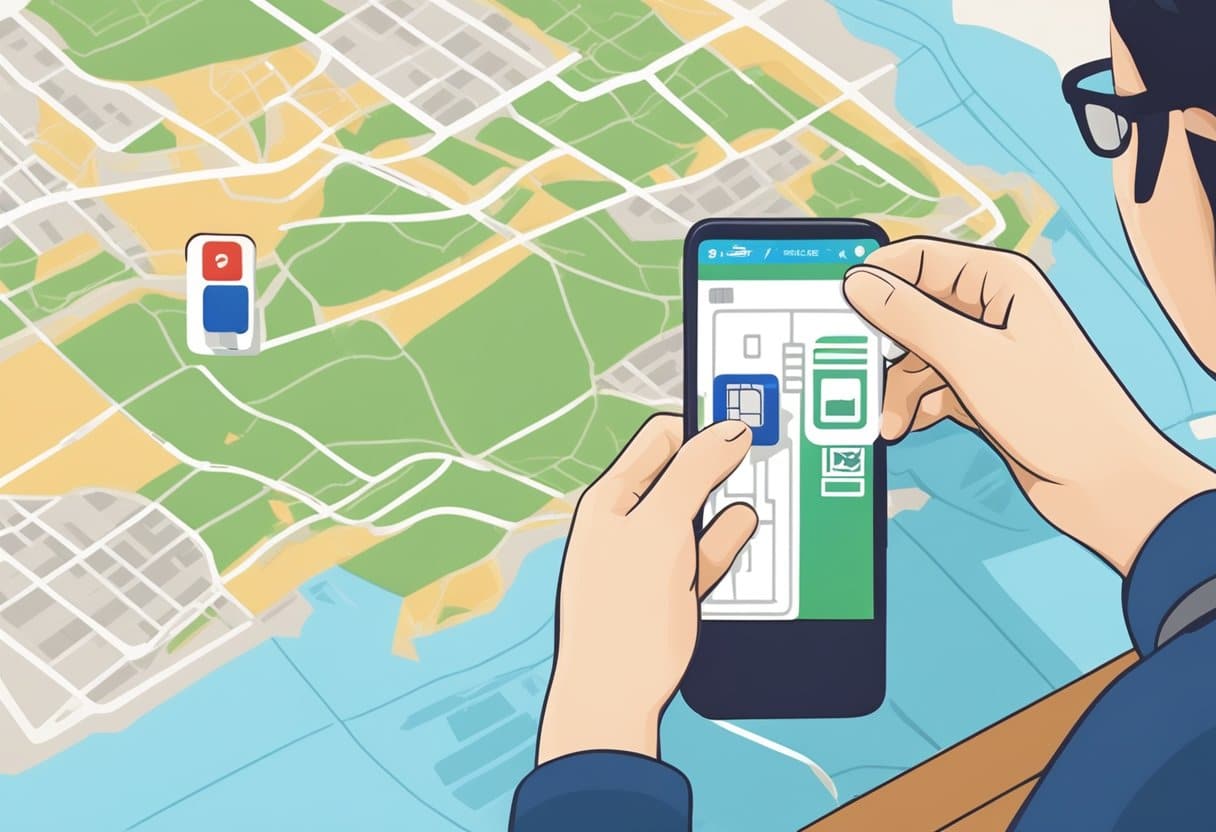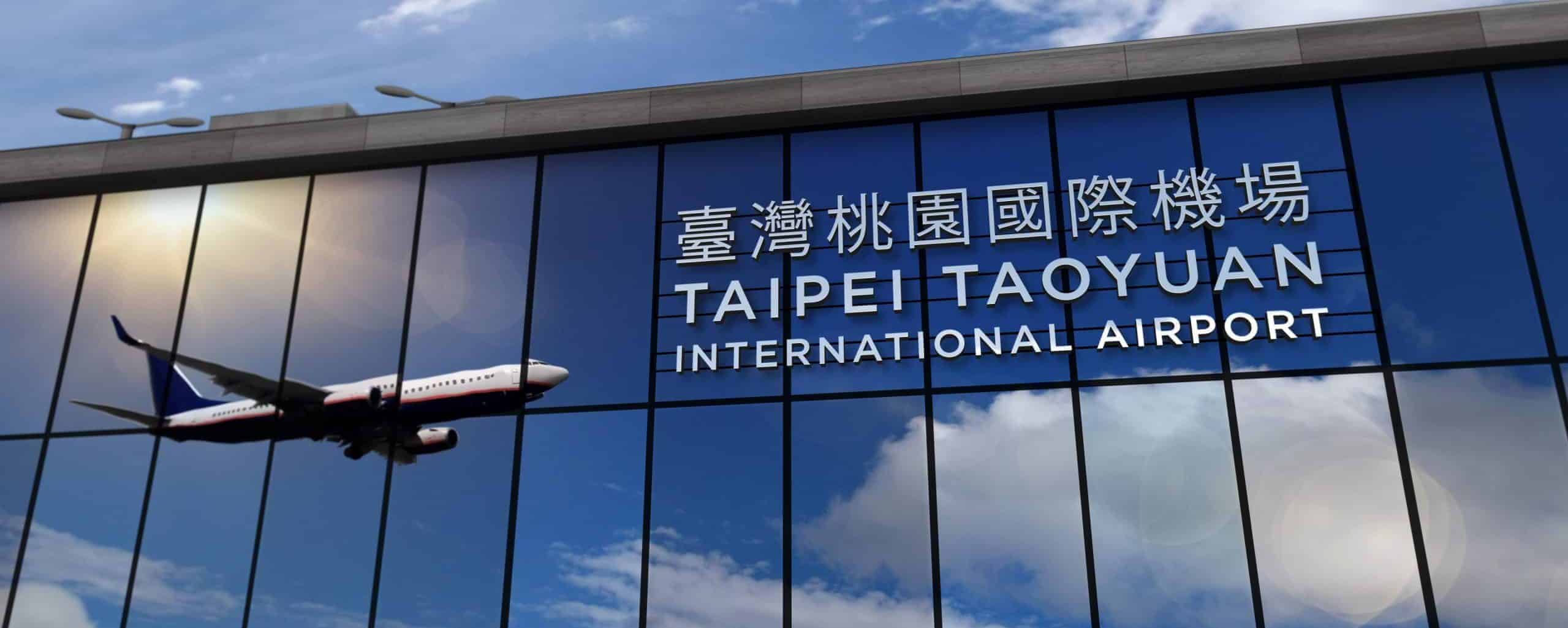Taiwan Sim Card for Tourists: Essential Guide for Staying Connected
Traveling to Taiwan offers tourists a wealth of experiences, from exploring vibrant night markets to taking in the tranquility of its mountainous landscapes. Staying connected through this adventure is vital, and acquiring a Taiwan SIM card for tourists is a key step in ensuring seamless communication during the trip. It not only allows tourists to share their experiences in real-time but also provides a reliable way to navigate maps, look up local information, and make reservations while on the move.

When it comes to choosing the right SIM card, tourists should consider their data needs and the length of their stay. Various mobile operators in Taiwan offer prepaid SIM cards designed for short-term visitors, which include a range of data plans and connectivity options to suit different preferences. Purchasing and activating a SIM card in Taiwan is straightforward, with options available at airports and city locations. For travelers planning a longer stay or requiring more extensive data, there are also plans offering higher data limits and even unlimited data under certain conditions.
Key Takeaways
- A local SIM card ensures reliable connectivity for tourists in Taiwan.
- Various data plans cater to short-term and long-term connectivity needs.
- Purchasing and activating a SIM card in Taiwan is a hassle-free process.
Why Tourists Need a SIM Card in Taiwan
Obtaining a SIM card in Taiwan is essential for any tourist wishing to have a smooth and connected travel experience. Not only does it facilitate communication, but it also provides convenient access to online services and information.
Benefits of Local SIM Cards
Local SIM cards offer a plethora of advantages for tourists in Taiwan. A primary benefit is cost-effectiveness; tourists can enjoy local call rates, affordable internet access, and avoid incurring expensive roaming charges. Taiwan SIM cards are known for providing ample data packages that cater to the needs of travelers who require consistent internet access to navigate maps, check Taiwan’s HSR schedule, or explore local attractions. Additionally, having a mobile data connection is invaluable for live translations and instant communication, enriching the travel experience significantly.
Purchasing a SIM card at the airport immediately upon arrival in Taiwan ensures that tourists can stay connected from the onset of their journey. With well-established operators like Chunghwa Telecom and Taiwan Mobile, travelers can expect robust network coverage across the island, which is particularly beneficial for those venturing into remote regions or utilizing high-speed Taiwan HSR services to travel between cities like Taipei and Taichung.
Understanding Taiwanese Mobile Networks
Taiwan’s mobile networks are advanced, offering widespread 4G and 5G coverage. This superior network coverage ensures that tourists can rely on their devices for real-time updates, whether checking the latest travel restrictions or simply staying in touch with friends and family. When choosing a SIM card, understanding the difference between the available operators allows tourists to select a service that best aligns with their travel itinerary and data needs.
For a seamless start to their travels, tourists can refer to practical information on how to reach places like the Taoyuan HSR station from various points such as the Taoyuan airport, all with the convenience of their own connected device. Given the importance of reliable communications and internet access in contemporary travel, a local SIM card is a near-essential tool for modern tourists in Taiwan.
Choosing the Right SIM Card
When traveling to Taiwan, selecting an appropriate SIM card is essential for staying connected. The right choice depends on multiple factors including duration of the visit, data requirements, and whether a prepaid or contract option is more suitable.
Comparison of Taiwanese SIM Card Providers
Taiwan has several SIM card providers, each offering unique plans and services. Chunghwa Telecom is known for having the best overall coverage, making it a reliable choice for tourists. Far EasTone and Taiwan Mobile are also popular, with competitive prices and good network availability. Tourists can compare their SIM card options to determine which provider suits their needs best for their duration of stay and travel plans within Taiwan.
- Chunghwa Telecom: Best coverage and speed.
- Far EasTone: Great speeds with impressive 5G offerings.
- Taiwan Mobile: Broad coverage and various package options.
Prepaid vs Contract SIM Cards
Prepaid SIM cards are generally the best choice for tourists due to their convenience and flexibility. They are easy to obtain, with simple activation and no long-term commitment. Travelers can choose from various prepaid SIM cards, which often include a set amount of data and calling minutes for a specific number of days. This option is great for short-term stays. For longer visits, or those requiring more extensive data or calling minutes, reviewing contract SIM options might be beneficial, as long as the necessary documentation can be provided for signing up. Convenient choices for prepaid options, such as for 3, 7, or 30 days, can be found on platforms like Klook, which offers a range of SIM cards to fit different travel needs.
- Prepaid:
- No contract required.
- Pay upfront for the duration and data allowance.
- Ready to use immediately upon activation.
- Contract:
- Often requires local documentation.
- Can offer better rates for long-term use.
- May include postpaid billing for the services used.
Purchasing a SIM Card in Taiwan
For tourists visiting Taiwan, acquiring a SIM card is straightforward, with various outlets offering competitive rates. One must consider both the location of purchase and the associated costs.
Where to Buy
SIM cards in Taiwan can be acquired at the airport upon arrival, which is convenient for travelers looking to stay connected immediately. Apart from Taoyuan International Airport, SIM cards are available at retail stores and select convenience stores across the country. These retail locations provide an assortment of SIM card options tailored for tourists.
Cost and Payment Options
The cost of SIM cards in Taiwan can vary widely, with prices often denoted in New Taiwan Dollars (NTD). Travelers can expect to find options catering to different budgets and data requirements. Payment is typically accepted via credit cards or cash, providing flexibility for international visitors. It is advisable to review various deals to find a plan that suits one’s data needs and budget constraints.
Activating Your SIM Card
Upon arrival in Taiwan, tourists need to undergo a straightforward process to activate their SIM cards. It involves providing valid identification and completing the activation steps as outlined by the mobile operator.
Registration and Identification Requirements
To register a Taiwan SIM card, one must present a valid passport at the point of purchase. This is a mandatory requirement to comply with local regulations. Tourists should ensure they have their passport handy when purchasing a SIM card. Identification is crucial for registration, and without it, activation cannot proceed.
Activation Process
Once the SIM card registration is complete, activation typically involves the following steps:
- Insert the SIM card into the device.
- Turn on the device and enter the PIN code if prompted.
- Wait for the network confirmation message, which indicates successful activation.
Some operators may require a call or SMS to a specific number to finalize activation. Instructions for these steps are usually provided with the SIM card package or at the point of purchase. It’s important to follow them carefully to ensure a smooth activation process.
Data Plans and Connectivity Options
When traveling to Taiwan, tourists have a variety of data plans to choose from, each with distinct data allotments, speeds, and network coverage. Understanding the specifics of data packages and comparing the differences in internet speeds and coverage can significantly enhance the connectivity experience during the trip.
Understanding Data Packages
Data plans in Taiwan typically range from daily to monthly options with varying data caps to accommodate different usage needs. For short-term visitors, there are prepaid SIM cards with fixed data allowances, for instance, a plan offering 5 GB of data for 30 days. Taiwan Prepaid SIM Cards: 2023 Price Comparison & Deals include packages tailored for tourists that are readily available at various booths in airports. Alternatively, for tourists preferring flexibility, providers also offer unlimited data plans, which often come with a higher price but the convenience of not worrying about data limits.
| Data Plan Type | Data Cap | Validity |
|---|---|---|
| Basic Plan | 1 GB | 3 days |
| Standard Plan | 3 GB | 7 days |
| Premium Plan | 5 GB | 30 days |
| Unlimited Plan | Unlimited | 30 days |
| Table: Examples of different types of data plans available for tourists in Taiwan. |
Comparing Internet Speeds and Coverage
Network coverage in Taiwan is quite extensive, with most providers offering thorough 4G LTE coverage, ensuring that tourists have access to high-speed internet across most of the island. Taiwan also boasts growing 5G networks, providing even higher download speeds in metropolitan areas such as Taipei. While 3G connectivity still exists, it is becoming less prevalent as providers expand their more advanced networks. The Best Taiwan Mobile SIM Cards: 2023 Guide for Tourists highlights that operators like Taiwan Mobile are known for their reliable 4G and emerging 5G services, offering high speeds and consistent connectivity. Tourists should consider the locations they plan to visit and choose a provider that offers the best coverage in those areas.
| Coverage Type | Availability | Expected Speeds |
|---|---|---|
| 3G | Widespread | Up to 7.2 Mbps |
| 4G LTE | Extensive | 10-50 Mbps |
| 5G | Metropolitan | 50+ Mbps (up to 1 Gbps) |
| Table: Comparison of internet speeds and coverage by network type. |
Managing Your SIM Card

When acquiring a tourist SIM card in Taiwan, it is essential to understand the procedures for maintaining its functionality throughout your stay. This includes knowing how to check your balance and understanding the validity period and top-up processes.
Validity and Top-Ups
Tourist SIM cards usually have a predefined validity period which may range from a few days to several weeks. Once you land at Taoyuan Airport, you can immediately purchase and activate a tourist SIM card. It’s crucial to note the expiration date of your SIM card to avoid any interruptions in service.
For extending the service, you can top-up your SIM card. Top-up options are widely available at convenience stores, telecom shops, or online. The process is generally straightforward, and instructions are provided in multiple languages to cater to tourists.
Where to Top-Up:
- Convenience Stores (7-Eleven, FamilyMart)
- Telecom Shops
- Online Services
Top-Up Steps:
- Choose the desired top-up amount.
- Follow the provided instructions to complete the process.
- Confirm the transaction and check the new validity period.
Checking Your Balance
It is important to regularly check your SIM card balance to manage your usage effectively. To check the balance, you can typically dial a short code provided by the operator, use their official app, or access the service online. Detailed instructions are usually included in the SIM card package or available through customer service.
- Methods to Check Balance:
- Dial a short USSD code (e.g., *101#).
- Use the operator’s mobile app.
- Log into the operator’s website.
Remember to check the balance periodically, especially before a planned top-up, to ensure seamless connectivity during your travels in Taiwan.
Alternatives to Traditional SIM Cards
When traveling to Taiwan, tourists have options beyond traditional SIM cards for staying connected. Embracing new technologies and services can lead to easier and often more cost-effective methods of accessing data abroad.
eSIM Technology
eSIM, or embedded SIM, provides a digital alternative to the physical SIM card. Devices with eSIM support allow users to download a virtual SIM from local operators, eliminating the need to purchase and insert a physical card. This technology is particularly beneficial for those who require a swift changeover from their home network to a local network upon arrival, ensuring immediate access to potentially more affordable data rates and local services.
WiFi and Hotspot Services
Travelers may also access the internet through free WiFi available in many public areas, including cafes, restaurants, and train stations. For a constant and secure connection, tourists can rent WiFi routers, commonly referred to as ‘pocket WiFi’, that provide mobile internet access without the need for a local SIM card. These devices can be exceptionally useful for groups, as multiple people can connect to a single unit, reducing overall data costs.
Staying Connected Beyond Calls and Texts
In today’s digital age, tourists in Taiwan rely on much more than traditional phone services to stay connected. From social media to advanced navigation, ensuring seamless access to internet-driven applications is vital.
Social Media and Messaging Apps
Through a reliable Taiwanese SIM card, tourists can easily sustain their presence on social media platforms, keeping in touch with family and friends via WhatsApp or making video calls back home. Engaging with apps like Instagram ensures that they can share experiences instantly and receive real-time feedback from their social circles.
Maps and Navigation Apps
When it comes to navigating the vibrant streets of Taiwan, having Google Maps at one’s fingertips is indispensable. Whether it’s finding the quickest route from Taoyuan Airport to Kaohsiung or exploring the busy alleys of Ximending, these apps provide clarity and convenience, eliminating the stress of getting lost in a new city. Moreover, adequate mobile data means uninterrupted access to real-time traffic updates and public transport schedules while journeying from Taoyuan Airport to Taichung, ensuring a smoother experience for savvy travelers.
Dealing with Issues and Support
When using a tourist SIM card in Taiwan, encountering issues may require assistance. Understanding how to troubleshoot common problems and access customer support services can ensure a smooth experience throughout your stay.
Troubleshooting Common Problems
When experiencing connectivity issues with a SIM card, the first step is to restart your device as this can often resolve basic problems. If the issue persists, check that the APN settings are correctly configured according to the instructions provided by the SIM card provider. Tourists should also be aware of network coverage areas; connectivity may be inconsistent in remote regions. For more specific issues, it may be necessary to visit a local store of a mobile operator for in-person support.
Customer Support Services
Mobile operators in Taiwan offer customer support services to address any complications with your SIM card. Customer support typically includes in-store assistance, where travelers can receive face-to-face help from knowledgeable staff. Furthermore, many sim card providers often provide assistance through hotlines or online chat support, where you can quickly get help in various languages. It’s advisable to inquire about services like Taipei airport luggage storage if there’s a need to leave your belongings while resolving SIM card issues at nearby facilities. Having the contact information for customer support on hand is crucial, especially if you’re relying on your SIM card for navigation or emergencies.
Before Leaving Taiwan

When preparing to depart from Taiwan, travelers should ensure a smooth transition to their home mobile network and responsibly dispose of their temporary SIM cards.
SIM Card Disposal
Travelers should address the disposal of their Taiwanese SIM cards responsibly. It is commonplace to find recycling bins designated for electronics at various locations within the airport. Discarding the card in one of these bins helps maintain environmental sustainability.
Switching Back to Home Network
Prior to leaving, travelers must revert to their home network. This process typically involves switching SIM cards and ensuring that international roaming is activated if required. For a stress-free switch, it’s advisable to perform this step while still within reach of a stable internet connection, which can often be found in airport lounges or duty-free shopping areas.
Final Considerations and Tips

When visiting Taiwan, travelers must keep in mind several key points to ensure their connectivity needs are met efficiently.
- Unlocked Phones: Visitors should ensure their phones are unlocked to accept local SIM cards, a necessity to use telecom services offered within Taiwan.
- SIM Card Availability: SIM cards are widely available, and visitors can choose from Chunghwa, Taiwan Mobile, or FET. Options include Chunghwa tourist sim for short trips.
- eSIM Alternatives: For a fuss-free experience, eSIMs are recommended for a short stay, bypassing the need for physical cards.
| Requirement | Recommendation |
|---|---|
| Phone Compatibility | Confirm phone is network unlocked prior to trip |
| Cost Efficiency | Compare SIM card prices to find the best deal |
| Buying Location | Obtain SIM cards at airports and convenient stores |
| Data Plan | Estimate usage to select an appropriate data plan |
- Installation Help: Vendors often help with SIM card installation; request assistance if needed.
- Coverage: Prioritize providers with comprehensive coverage to stay connected in more remote regions across Asia’s diverse landscapes.
Data considerations: Research data requirements, as high-definition mapping and translation services may consume more data. Choose a plan that adequately covers these needs to avoid additional charges.
By following these tips, individuals can navigate Taiwan’s telecom options with confidence, keeping connected throughout their Asian journey.
Frequently Asked Questions
For tourists planning to visit Taiwan, understanding the options for mobile connectivity is key. This section provides targeted information on obtaining and using SIM cards in Taiwan.
What options are available for tourists to buy a mobile SIM card in Taiwan?
Tourists have several options for purchasing SIM cards in Taiwan, including various data plans and pricing to suit different travel needs. SIM cards are available at airports, convenience stores, and specialized telecom shops.
How can visitors obtain a Taiwanese phone number with their SIM card purchase?
When tourists purchase a SIM card in Taiwan, they typically receive a Taiwanese phone number associated with it, enabling them to make local calls and use mobile data. Activation instructions are provided at the point of purchase which, when followed, assign a local number to the user.
Where can tourists purchase a prepaid SIM card upon arriving in Taiwan?
Upon arrival, tourists can purchase prepaid SIM cards at Taiwan’s international airports, where kiosks are conveniently located in the arrivals area. These kiosks offer a variety of plans tailored to short-term visitors.
Can tourists buy a SIM card for Taiwan online before their trip?
It is possible for visitors to purchase SIM cards online before arriving in Taiwan, providing a hassle-free option that can be ready for use upon landing. Many services offer to ship the SIM card to the tourist’s home address or arrange for pickup upon arrival in Taiwan.
Are eSIM cards a viable option for tourists traveling to Taiwan?
eSIM cards are increasingly popular among travelers to Taiwan, offering a convenient and often more affordable way to access data without the need for a physical SIM card. Compatible devices can be set up with an eSIM before departure or upon arrival.
What are the comparisons between SIM card and pocket WiFi options for internet connectivity in Taiwan?
Tourists deciding between a prepaid SIM card and a pocket WiFi will consider factors like pricing, the number of devices they need to connect, and data usage. Pocket WiFi devices may be preferable for groups wanting to share connectivity, while SIM cards are ideal for individual use with straightforward data plans.

